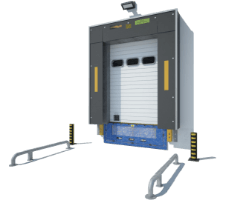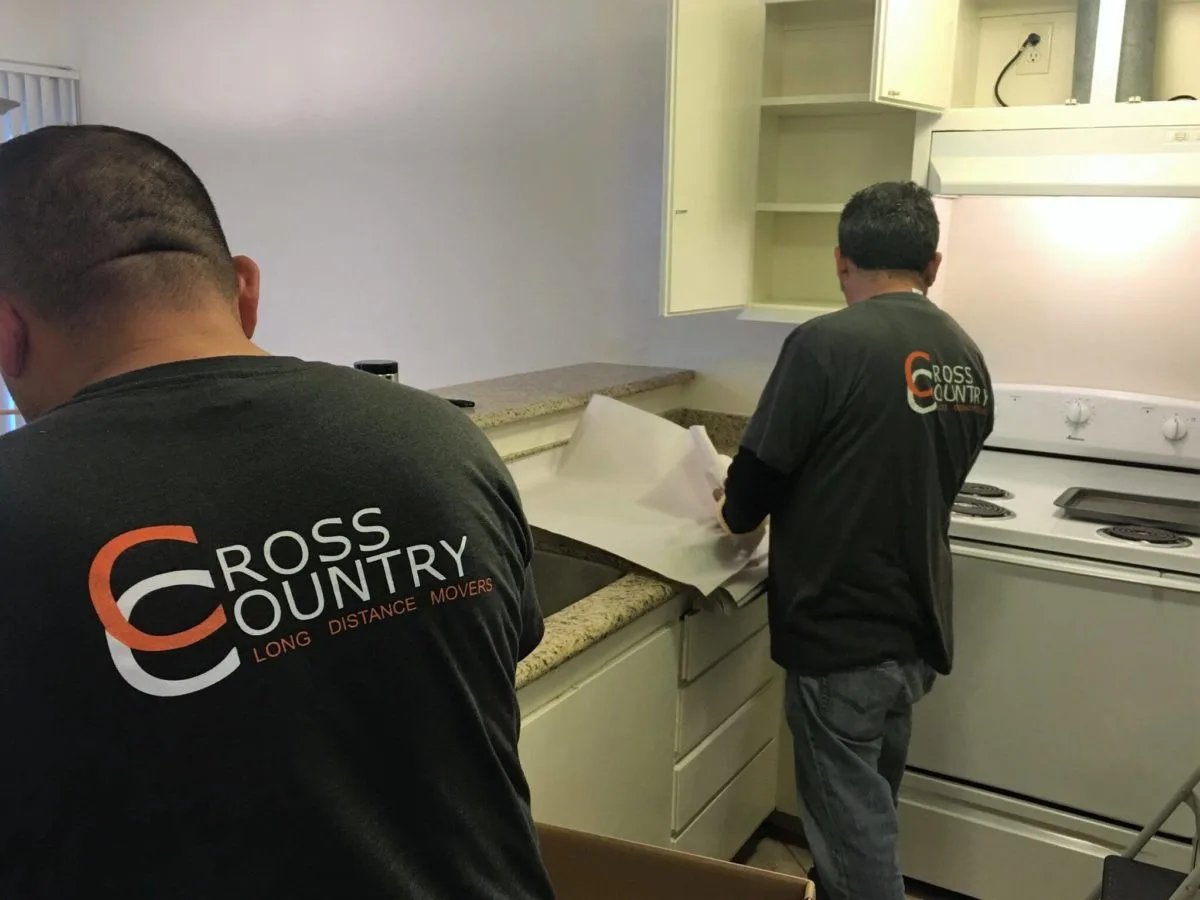Moving to an urban area requires thoroughly researching neighborhoods, costs of living, and public transportation options. Create a detailed budget, factoring in initial moving expenses and ongoing costs like rent and utilities. Declutter before you move to streamline belongings. Hire professional movers for efficiency and coordinate with building management to reserve necessary spaces. Finally, connect with the new community and explore local events to settle in smoothly. Proper planning and these essential tips will help you navigate the transition and thrive.
Moving to a Big City – Essential Tips for a Smooth Transition
Moving to a big city can be both exhilarating and overwhelming. Whether you’re relocating for work, study, or a fresh start, a well-planned move is essential for a smooth transition. After all, more than 85% of Americans reside in metropolitan areas. So, if you want the same experience, here’s our guide that covers all the essentials for making an urban relocation successful.


First Thing First – Prepare for the Relocation Adequately
Even the last-minute relocation requires thorough preparation to ensure a smooth transition. Adequate preparation involves researching the new place, learning the cost of living, and planning the budget carefully. With these initial steps, you can make informed decisions and set yourself up for success in a new urban environment.
So, if you want a stress-free relocation, the first thing to do after booking top-notch cross-country moving services is to create a new city moving checklist. That way, you won’t have to worry about the crucial steps of the whole process.
Research the New City and Know What to Expect
The first thing on the to-do list should be thorough research of your future home, especially when relocating alone. Learning about neighborhoods and districts is crucial to finding a place that fits your lifestyle and needs. Conduct a cost of living comparison to see how expenses like housing, groceries, and utilities differ from where you are now. Investigate public transportation options to ensure you have convenient and reliable ways to get around the city.
Create a Budget When Relocating to a Metropolitan City
Creating a budget is essential for managing finances in a big city. Begin by estimating initial moving costs, including hiring one of many cross-country moving companies and setting up a new home. Plan for ongoing expenses such as rent, utilities, and groceries to avoid any financial surprises. Additionally, building an emergency fund can provide a safety net for unexpected costs and help you feel more secure in the new environment.


Find a Place You’ll Call Home and Choose the Right Neighborhood
How to move to a big city alone? Begin with urban apartment hunting. The first parameter is proximity to work and amenities. It will minimize commute times and have easy access to shops, restaurants, and services. Assess the safety and community vibes by researching crime rates and visiting neighborhoods to get a feel for the local atmosphere. Look into future development plans to understand how the area might change and affect your quality of life in the coming years.
Decide What’s the Better Option – Renting vs. Buying
Deciding whether to rent or buy is a major decision in the process of urban relocation. Pros and cons of renting in a big environment include flexibility and lower upfront costs, but potentially higher long-term expenses and less stability. Here’s the table of all the pros and cons of both options.
| Renting | Buying | |
|---|---|---|
| Upfront costs | Lower (no down payment, minimal initial expenses) | Higher (down payment, closing costs, inspection fees) |
| Flexibility | High (easy to relocate, short-term commitments) | Low (more permanent, harder to relocate quickly) |
| Monthly costs | Rent payments, potentially fluctuating | Mortgage payments, generally stable but can include variable rates |
| Personalization | Limited ability to customize or renovate | Full control over customization and renovations |
| Tax benefits | None | Potential tax deductions (mortgage interest, property taxes) |
| Additional costs | None beyond rent and utilities | Property taxes, homeowners insurance, HOA fees, and maintenance costs |
Planning the Move – Be Aware of Steps You Shouldn’t Omit
Did you know that every year, the Better Business Bureau (BBB) gets about 13,000 complaints and bad reviews about relocation businesses? This means if you want to move efficiently, you have to make a wise decision on which long-distance moving company you will hire.
Besides choosing trustworthy long-distance moving services, keep in mind other critical steps that you shouldn’t omit – downsizing for relocation. Let’s check how to take care of these aspects effortlessly.
Hiring Professional Cross-Country Movers – How to Make the Best Choice?
When you think that there are almost 17,000 relocation businesses in the US, choosing a crew with top-notch and reliable cross-country moving service can be quite a difficult task. You have to ensure you’re not stuck with the scammer.
However, if you want to simplify the entire relocation process, hiring long-distance movers is something you should consider.
When it comes to urban areas, the professional relocation crew is a necessity – think about how navigating traffic and tight spaces can be challenging.
Benefits of professional movers include their expertise in handling large items, efficient and secure packing service, and knowledge of city regulations and logistics.
Look no further than Cross Country Moving Company. We have many years of experience in relocating thousands of satisfied customers.

Auto Transport
Cross Country Moving Company is the most trusted name in auto industry in the country.
Moving Insurance
Cross Country Moving Company is the most trusted name in the relocation industry in the country.

Storage
Cross Country Moving Company is the most trusted name in auto industry in the country.
Decluttering Before the Big Relocation – Get Rid of the Belongings You Don’t Need
Decluttering before the move is an essential step to ensure a smooth and efficient transition to the new home. Reduce the amount you need to transport and create a more organized and functional living space. Here’s what the process of getting rid of stuff should look like:
- Sorting and donating unwanted items – Go through belongings and set aside items you no longer need. Donate clothes, books, and household items to local charities or shelters.
- Selling or recycling furniture and appliances – Sell larger items like furniture and appliances that you don’t plan to take with you. Use online marketplaces or local services to find buyers or recycle items responsibly.
- Streamlining belongings for urban living – Urban living often means smaller spaces. Focus on keeping only what you truly need and use, and consider multifunctional items that save space.


How to Handle the Logistics of Moving Day?
Moving day can be hectic, but with proper planning and organization, you can make the process much smoother. From coordinating with building management to managing traffic and parking challenges, handling the logistics of the big day requires attention to detail and effective communication.
Manage Traffic and Parking Challenges
One of the big city living tips is to always transport a car with you, although navigating city traffic and parking can be challenging. However, a four-wheeler will help you adjust to a new environment in no time.
So, plan routes and schedule relocation during off-peak hours to avoid congestion. Secure temporary parking permits in advance to ensure you have a spot for moving trucks and personal vehicles. Hiring professional movers can also help, as they are experienced in dealing with urban logistics, making the process smoother and less stressful.


Steps for Settling Into the New City Life
Moving to a new city can be both exciting and challenging, offering fresh opportunities and a chance to explore a different environment. To settle in smoothly, it’s important to familiarize yourself with your surroundings, establish a routine, and begin building a local network. These steps will help you feel more at home and make the most of your new city life.
Set Up the New Home
Prioritize essential items first to quickly make the space functional, tackling one room at a time to stay organized and reduce stress. Use affordable decor options like DIY projects, thrift store finds, and multi-functional furniture to personalize the home without breaking the bank. Maximize space with smart and creative storage solutions like shelves, under-bed storage, and multipurpose furniture to keep the home tidy and efficient. All this will make the apartment feel more homey and help you set in quickly.
Connect With the New CommunityAfter Moving Cross-Country
Each individual has different reasons to live in a big city. But, when it comes to city life adaptation, it’s pretty much the same situation for most – it’s not as easy as you thought. Whether you want to just meet the neighbors or even make friends, you’ll have to begin somewhere, right?
Explore community boards, social media, and local apps to find events and meetups that match your interests and help you meet new people. Join clubs or organizations related to your hobbies or profession to build connections and feel a sense of belonging. Take advantage of diverse cultural activities and social events to immerse yourself in the local culture and make new friends.
Navigate Public Transportation
Did you know that New York City is rated as the place with the worst traffic in America? Keep this in mind if planning to start a new life in a big city like this one. Familiarize yourself with transit maps and schedules, and use apps to plan routes and stay updated. For efficient commuting, travel during off-peak hours and take express routes or alternative modes like biking. Always stay alert, secure belongings, and avoid empty transit cars, sticking to well-lit, busy areas.
Manage City Life Challenges With Ease
Living in a big city brings its own set of challenges, from dealing with constant noise and crowds to ensuring safety. However, with the right strategies and mindset, you can overcome these obstacles and enjoy a vibrant urban lifestyle. This section provides practical tips for creating a peaceful home environment, finding tranquil spots in the city, and practicing stress-relief techniques to help you navigate and thrive amidst the hustle and bustle of city life.
Deal With Noise and Crowds While Navigating a New City
Creating a quiet home environment is essential in a bustling environment. Invest in soundproofing solutions like heavy curtains, rugs, and noise-canceling devices to minimize outside noise. Arranging furniture to block noise and using white noise machines can also help create a tranquil space.
Practicing stress-relief techniques is vital for maintaining well-being. Incorporate mindfulness, meditation, or yoga into the daily routine to manage stress effectively. Regular exercise and hobbies that bring joy can also help you cope with the demands of city life.
Staying Safe in a Big City
Be aware of the surroundings, stay alert, and avoid distractions in busy areas. Knowing the neighborhood and safe routes is essential. Secure the home and belongings with quality locks and security systems. Always lock windows and doors, and be cautious about sharing personal information.
Know emergency contacts and resources. Familiarize yourself with local emergency services, and keep important phone numbers handy. These steps will help you feel secure and confident.


Moving to a Big City With Cross Country Moving Company
Relocating to a bigger environment is an exciting adventure filled with new opportunities. By preparing thoroughly, utilizing professional help, and embracing the new environment, you can make the transition smooth and enjoyable. You can do that effortlessly by hiring Cross Country Moving Company. Contact us and we’ll help you with all aspects of relocation, letting you prepare for a fresh start.






